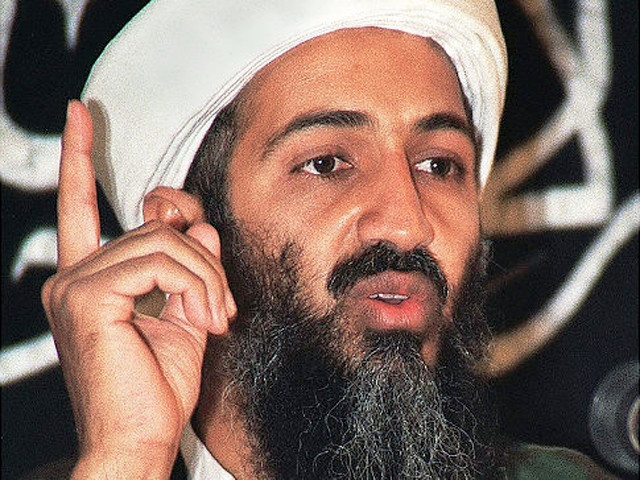Why do militants quit West to train in South Asia?
Here are questions and answers about some Westerners abandon lives in the West and conduct armed training overseas.

Why do militants quit West to train in South Asia?
Here are questions and answers about why small numbers of Westerners abandon lives in the West and conduct armed training overseas with groups allied to al Qaeda.
Where are Westerners first radicalised?
Before the September 11 attacks radicals often sought to recruit in high-profile mosques. This is now more commonly done online, in homes, youth groups, campuses, on immigrants' trips to ancestral lands, and increasingly in prison. Prisons occupy a central place in the history of militant groups such as al Qaeda which see them as valued centres of learning, recruitment and indoctrination.
Britain's chief prison inspector said in May the treatment of Muslim inmates by prison staff as potentially dangerous militants risked driving them into the hands of radical groups.
How important are Germans in the latest wave?
Militants of many nationalities have left the West for Pakistan since 2008 including Americans, Britons and French, but the proportion of Germans seems to have grown. A so-called "Hamburg Travel Group" of 11 radicals linked to the Taiba mosque left Germany in March 2009 to fight against the US and coalition forces in Afghanistan.
Analysts say they were among about 200 that left Germany since 2008, a rise in numbers compared to earlier years. German media have said earlier generations of German militants were "angry young men" keen to fight US troops in Afghanistan. The latest generation is said to be younger, more ethnically mixed and willing to take wives and children along.
In "My Path to Paradise", a posthumous book by militant Eric Breininger, killed in early 2010 in the Afghan-Pakistan border area, he says ties of language helped unite the German militant community in Pakistan. He praises aid from supporters in Turkey. Breininger ends his story with an appeal to German Muslims to support the war financially: "If the brothers would buy one doner kebab less a week it would be possible to buy almost 20 sniper bullets to fight the kuffar (unbelievers)."
What's so attractive about al Qaeda and its allies?
Al Qaeda's message that "Islam is under attack" is simple, its propaganda is professional, membership is global and multi-ethnic, it has deep alliances with militant groups on the Afghan-Pakistan border and in Pakistan's Punjab heartland and it cultivates a string of offshoot groups in other regions.
In militants' eyes, US-led military intervention in Muslim lands shows the power of al Qaeda to provoke the sole remaining superpower to drain military and human resources. Abuses of Muslim prisoners by Western forces aid recruitment, experts say.
What are the weaknesses of al Qaeda?
The victims of its indiscriminate attacks include civilians and Muslims. It has no practical political agenda. Drone attacks have killed many mid-level and senior operatives. Perhaps worst of all, some of its allies are reported to be preparing to talk to the Afghan government about a settlement. Progress towards a solution will pressure Taliban ties to al Qaeda because the West will demand that any mutual support cease.
Do scholarly repudiations of indiscriminate violence work?
There have been several celebrated rebuttals since 2000, most recently including a recasting of a famous medieval fatwa on jihad and a 400-page refutation of indiscriminate violence by Libyan militants.
Former bin Laden associate Noman Benotman says such high-brow work will only have an effect if its authors take the time to argue their case in person with young militants who may not grasp the complexities of the written arguments.
These mostly Arabic recantations, many inspired by al Qaeda killings of civilians in Iraq, are better known among Arabs than in the West or south Asia. Al Qaeda has been sufficiently concerned to publish online condemnations of some of them.
How important are failed or fragile states to militants?
Very. Al Qaeda seeks to take root in the very weakest states such as Afghanistan, Somalia or Mali. Such states become even more valuable when they are next to weak but functioning states, because such countries, Pakistan is Afghanistan's neighbour, and Kenya is Somalia's, offer financing and logistical services that can be accessed, often through corrupt ties.
But the networks are also learning to cultivate "home grown" militants in the West using online messages.
What's so effective about al Qaeda's propaganda?
Good quality multimedia online content is a hallmark of many Arabic-language messages published by al Qaeda's media experts.
But a notable recent innovation has been English-language content, and use of social networking sites and chat-rooms.
The Yemen-based branch of al Qaeda this year began publishing an English-language magazine "Inspire", which surprised many with its slick, teen magazine-style presentation.
Its second edition, published this month, urges radicals to mow down pedestrians with sports utility vehicles fitted out with knives attached to its front bumpers.
"The idea is to use a pickup truck as a mowing machine, not to mow grass but mow down the enemies of Allah."
Inspire also offers handy tips on how to stay undetected in the West: Avoid contact with fellow extremists. Read militant propaganda on academic sites rather than on extremist sites.
Analysts are also worried by the Yemen-based preacher Anwar al-Awlaki because he speaks and writes convincingly in a Western idiom, a rare skill among top militant propagandists.



















COMMENTS
Comments are moderated and generally will be posted if they are on-topic and not abusive.
For more information, please see our Comments FAQ